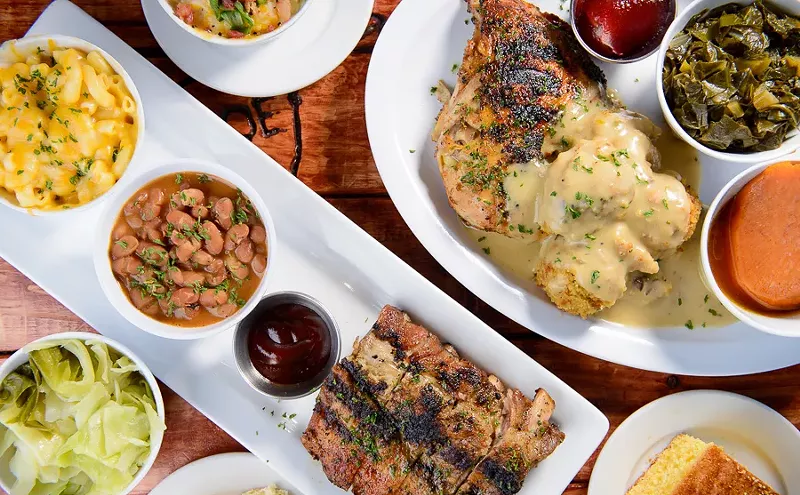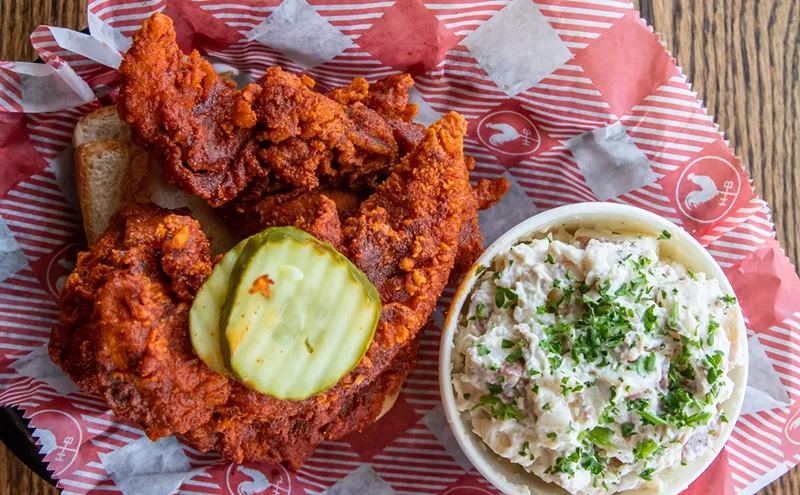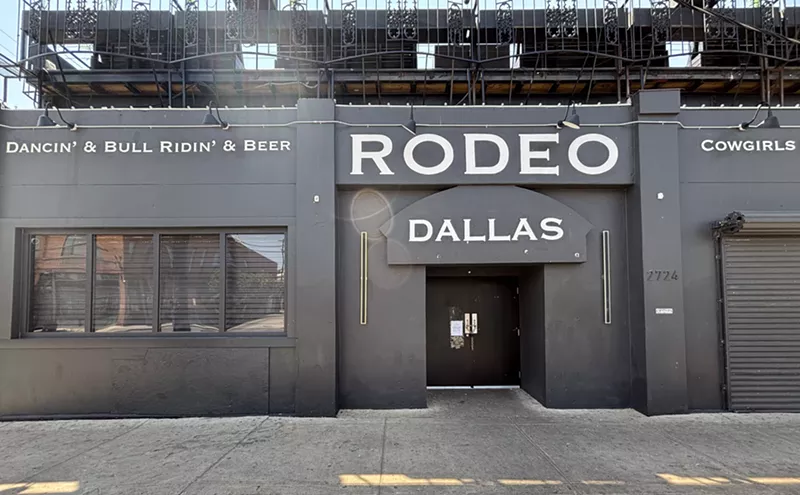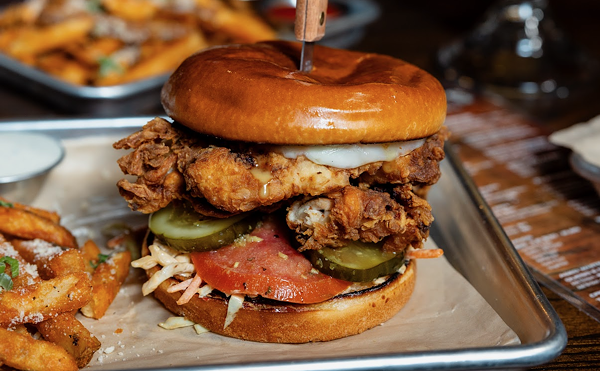But It Is Pretty Damn Confusing, Even For The Servers Themselves. A More Than You Ever Want To Know Primer...
The restaurant industry might be one of the shadiest in the country. It is populated by the likes of Anthony Bourdain and Jason Sheehan, after all. But mainly this is due to the highly contested system of tipping.
Tipping is a primary source of income for waiters--at least in this country--so restaurants generally pay a much lower minimum wage: $2.13 an hour. Writer's wages...although some states, like California (damn socialists, the lot), have raised the standard to as high as $8.00. An estimated 2,371,750 wait staff nationwide receive a mean annual wage of $19,580, with a mean hourly wage of $9.41 (tips included). Interestingly, the largest mean annual wage for waiters is $27,610 in the state of Washington.
What's that mean? Who knows.
Most of this pay comes from the "optional" service tip, the one determined by customers. So waiters must smile and nod, waitresses show some cleavage and put up with randy male guests in order to supplement an otherwise inadequate minimum wage. If, by the end of the week, a server's ultimate salary doesn't even out to the standard minimum wage of $7.25, the employer is responsible for making up the difference in direct wages.
Even though a waiter or waitress is ultimately supposed to receive at least the standard minimum wage, the uncertainty of how many tips they make, and how much of those tips they get to keep, is what makes service such a hit-or-miss career.
Tax deduction aside (and there is a question of how honest waiters are
in reporting their total cash income), waiters never pocket the total
amount of tips they make during a shift. In many, perhaps most, cases
they are obliged to share their tip earnings with colleagues--including
busboys, hostesses, and bartenders--who also assist and interact with
customers. At most restaurants, waiters will receive a "server report"
listing their earnings from the night from both credit card and cash
tips. The amount of service people also working the shift generally
determines the percentage that the waiter is required to "tip out" out
of their gross net pay.
Federal law specifies that employers are allowed to mandate such a
tip-pooling policy, but it can involve no more than 15% of a waiter's
total gross tip. Rumor has some establishments exceeding this amount.
The Department of Labor has also seen situations where management
pressures employees to tip-out to colleagues who aren't legally
permitted to partake in the tip pool.
Sounds fun, right?
Legally, servers participate in tip pooling above 15 percent on a voluntary basis. But
rarely does a server know, or assert, this right. Eduardo Flores, a
Dallas waiter for over 35 years and current Director of Operators at
ReMarkable Affairs Catering, says that management will often covertly
punish a wait staff member who doesn't show support for team morale.
They will assign poor shifts or tell them they aren't needed during
seemingly slow hours.
From the consumer--and server--standpoint, "tip pooling" somewhat eliminates the
reward for individual effort inherent in the gratuity exchange. Some
servers can work their tails off while others lounge in the shadowed
outskirts of the kitchen, waiting for their tables to fill up and at
the end of the day, they rake in approximately the same amount.
But perhaps most problematic is how these tips are distributed--and by
whom. At La Duni, for example, the servers themselves are assigned the
duty of adding up the tips then distributed amongst those participating in the pool, at
least according to a waiter currently working there. Federal lawsuits
across the country have dealt with owners or managers who, when
organizing the pool, illegally pocket some of the profit. In May of
this year, a class action lawsuit was filed by eight Hooters waitresses
in California's Bay Area who charged their managers with dipping into
their stash. A server's salary can also be short-sheeted when they are
assigned inopportune hours, or are responsible for doing "side work."
Side work is typically manual labor that is necessary for the upkeep of
a restaurant--stuff that needs to get done: Umbrellas and chairs moved
to the patio, salt and pepper shakers filled and cleaned, glass panes
Windexed, floors mopped (which can be a disturbing task at, say, Chuck
E. Cheese) and so on. But even during these grunt work shifts, the
service crew receives the reduced minimum of, say, $2.13. If the waiter
or waitress only collects a small amount from customers during the
hours they are actually working the tables, the end result may be spot
on minimum wage.
According to Brian T. Farrington, a Fort Worth lawyer whose practice
focuses on employment issues, employers are permitted to pay
tipped-employees the lower minimum rate when they are engaged in
"tip-producing activities"--activities incidental to their work as a
server--as long as a server isn't doing maintenance for more than 20
percent of their time. Even with these legal perimeters, however, some
are assigned more busy work than others...and what is "incidental" to
the work can be interpreted loosely by employers.
This is where favoritism, and working above and beyond, kicks in. To
grab profitable hours, servers must show diligence, of course--and
loyalty. Often times, restaurant managers look down upon those who try
to straddle a second restaurant job for that extra cash. Not only is it
inconvenient to work with a server's selective schedule, it can also
threaten business when a popular server diverts his or her regular
clientele to another establishment.
So novice wait staffers are expected to work all week long, put in late
hours and bear the underpaid hours of side work. Yeah, yeah--paying
dues is true of any other industry. But in a job dependent on the
seemingly whimsical nature of tipping, is it financially possible to
make it through these initial and uncompromising stages?
In a nutshell, "you've got to be a waiter as a living, for a living, in
order to be chosen," says Flores.
Newcomers--such as students working a summer or weekend shift to
accommodate their schoolwork--are at a disadvantage, because they
aren't "in" with the tight knit, deal-breaking community of servers and
employers. Without a reputation and a willingness to break their backs,
a novice is likely to make the bare minimum for many, many shifts...and
end up doing most of the grunt work.
Much like interning at an alt-weekly newspaper.
Unlike servers who have worked their way up, if novices are
dissatisfied with their net pay at the end of the week, they don't have
much leverage.
Simply put, the tipping system is rather flawed. With wage-defeating
work requirements such as tip-pooling and "side work," waiters can get
the shaft repeatedly, like...no, better not go there.












